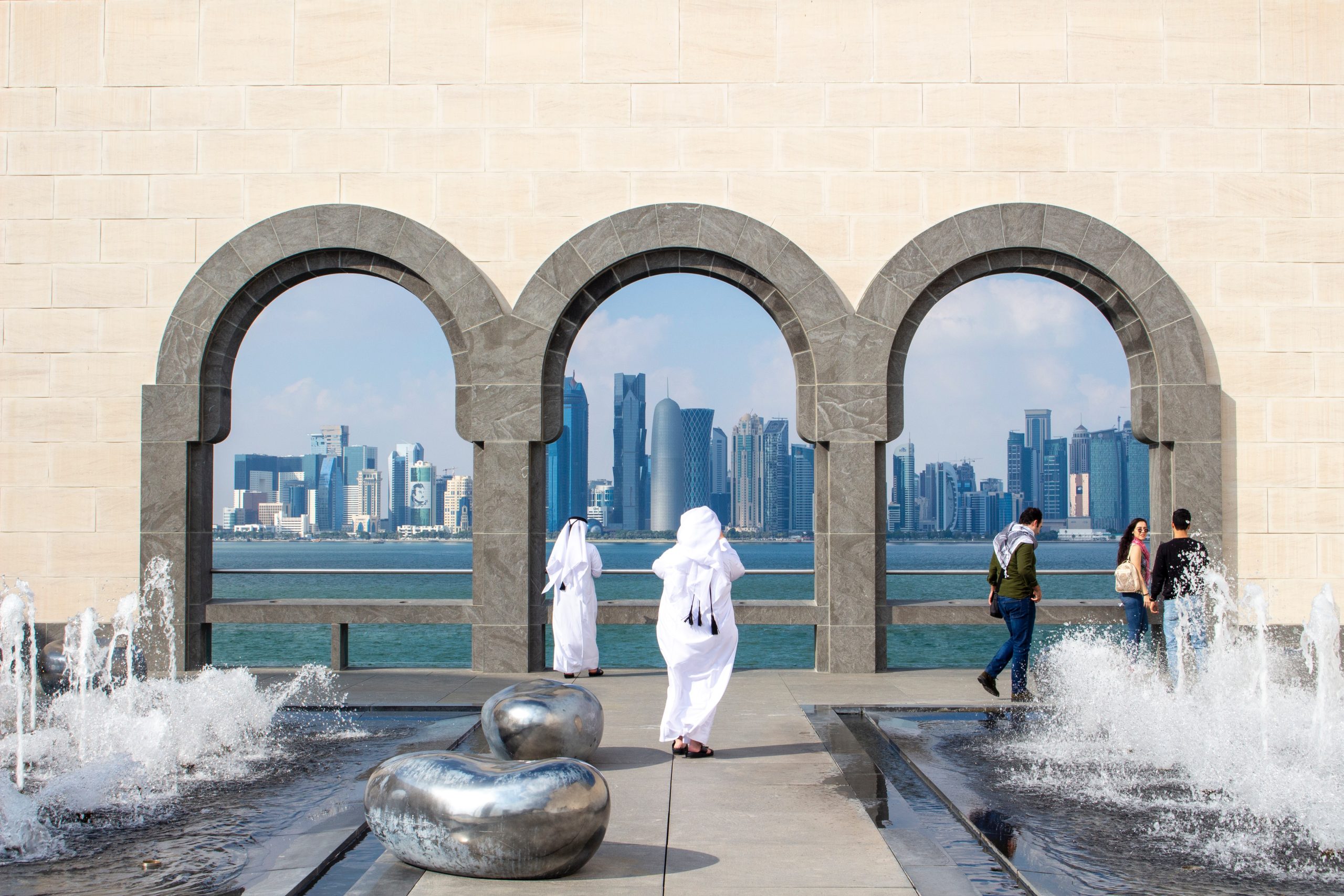An overwhelming majority of 87% of Arab youth said the World Cup “strengthened Arab pride”.
Arab youth named Qatar among the top-five “model nations” to live in for the first time since 2014, the 2023 ASDA’A BCW Arab Youth Survey revealed on Tuesday.
“Young Arab men and women now say they would rather live in Qatar than the United Kingdom, while Saudi Arabia ranks joint-fifth with the UK in their list of countries they most want their own to emulate,” the survey found.
Total of 24% of Arab youth surveyed across 18 countries in the region named the UAE as a desired place to live in, followed by the United States with 19%, Canada at 19%, Qatar at 14%, and the UK at 13%.
The findings were based on face-to-face interviews with 3,600 Arab citizens aged 18-to-24 in their home nations between 27 March until 12 April this year.
The latest edition of the survey saw Qatar named by the youth as a preferred place of residence for the first time in years, thanks to the success of the 2022 FIFA World Cup.
“This reflects the hugely positive impact of the FIFA World Cup 2022 last November and December; without question, the tournament had a galvanising effect on both the regional economy and Arab pride,” Sunil John, President, Founder of ASDA’A BCW, said.
Qatar made history by being the first ever Arab and Muslim country to host the World Cup, breaking stereotypes on the region while serving as a platform for the exchange of cultures.
The tournament in Doha was widely described as “the safest” and “best version” of the World Cup in the history of the tournament.
‘Strengthening Arab pride‘
An overwhelming majority of 87% of Arab youth said the World Cup “strengthened Arab pride”, citing Qatar’s major accomplishments.
“Qatar’s many recent accomplishments, not least its successful hosting of the FIFA World Cup 2022, have earned the approval of young Arabs across the region. The country’s large-scale investment in infrastructure and rapid economic diversification are also undoubtedly factors behind its appearance on Arab youth’s top-five list of preferred nations,” John said.
The Gulf state was hit with a massive Islamophobic campaign since winning the bid to host the major event. Western headlines heavily criticised Qatar for its treatment of migrant workers, despite the mass labour reforms in the country.
Similar campaigns targeted Morocco’s national team, which became the first African and Muslim country to reach the semi-finals in World Cup history. Such incidents involved comparing scenes of players celebrating with their mothers to monkeys.
In a rare live interview in April, Qatar’s Prime Minister and Foreign Minister Sheikh Mohammed bin Abdulrahman Al Thani said the major sporting event shifted past perceptions on the Gulf state, especially among the Western press.
“If you see public opinion across the media, for example the BBC, which everyone saw was clearly against Qatar’s hosting of the tournament, its poll showed the Qatar World Cup as the most successful,” Sheikh Mohammed said.
Following Argentine’s win at the World Cup, the traditional bisht cloak became a global phenomenon and a fan favourite after Qatar’s Amir Sheikh Tamim bin Hamad Al Thani wrapped it around Lionel Messi.
The bisht is a traditional cloak for men that is part of the region’s ancient heritage and is worn in special ceremonies. It is also known to be symbol of royalty.
In April, Qatar’s Ministry of Culture’s Department of Heritage and Identity announced a bid to include the traditional cloak in the upcoming World Heritage Day 2024.
“What Qatar achieved in hosting the World Cup surpassed just the World Cup itself. People from around the world got to know Qatar and its people, which has achieved many results beyond the tournament and which we will be seeing for years to come,” Sheikh Mohammed said during his Qatar TV interview.







